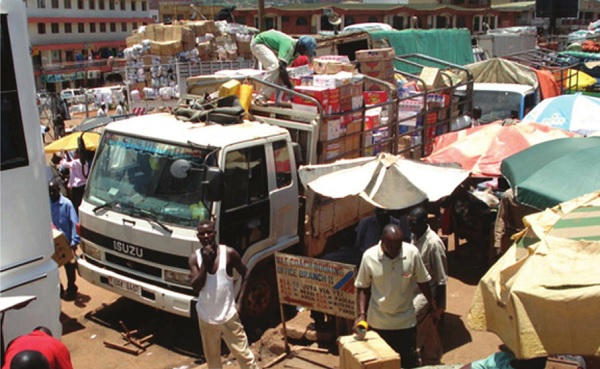
Government moves to get South Sudan pay up multi-million dollar debt to Ugandan traders
Over the last nine years, Appolo Nyagamahe, the proprietor of the Aponye Enterprises, has been going through a period of bitterness. Since 2008, he has suffered the ordeal of being forced to liquidate some of his property in order to clear the debts he owed to his Ugandan suppliers of food products that he sold to the South Sudan government. The government of South Sudan refused to pay up.
“I had to sell off my hotel on William Street in Kampala and pay farmers who had supplied me with the agricultural produce,” Nyagamahe told a local TV station some time back.
“What we want is the government to help us demand for our payment from the government of South Sudan for the food we supplied based on the contracts we have.”
Aponye is one of more than 24 other companies that have grappled with the heavy weight of debts accrued as a result of failure by the South Sudan government to pay debts owed to Ugandan traders who supplied food stuffs such as sorghum and maize to the tune of more than $41 million. However, there were also other suppliers of various products and services.
It is on this basis that the Ugandan government has embarked on an ambitious effort that will see its traders paid and later seek compensation from the Juba government.
Prior to the conflict, South Sudan earned most of its money from selling oil, accounting for 98% of government revenues. But since then, production has halved because some oil fields were taken over by the rebel forces or damaged.
The new move follows President Yoweri Museveni’s directive that the government must help the companies. As such, the government, through the Ministry of Trade, Industries, and Cooperatives and the Ministry of Finance, Planning and Economic Development, has completed verification of the first batch of companies under their umbrella body, the Uganda Grain Traders Association.
Sources said the government plan to finalise verification of two batches of traders – those with supporting documents and those without documents.
“One of the options that the government through the ministry of finance is looking at is to pay the traders and seek for a refund from the government of South Sudan later either in cash or in kind,” a source said.
The decision to pay the traders, however, has been slow as the finance ministry has been reluctant to effect the payment questioning how the government will recover the money from the broke South Sudan.
Finance Minister Matia Kasaija told The Independent that the government doesn’t not intend to spend on the payment of traders on behalf of the government of South Sudan.
Instead, he said, the government intends to hold discussions with South Sudan and come up with a mechanism that Africa’s newest nation will pay the traders.
Reports indicated that South Sudan officials want to meet the Kampala officials seeking for a soft loan that will be used to pay Ugandan traders and later re-reimburse it back once the country returns to normalcy.
South Sudan became Uganda’s leading export destinations in the region following the signing of the Comprehensive Peace Agreement in 2005, with the total exports reaching its peak at $1.18billion in 2008, according to the data from the MTIC.
Last year, Uganda’s export earnings to South Sudan declined to $353 million from $385 million in 2014, and $414 million in 2013 due to a conflict that broke out in Dec 2013 and the subsequent decline and scarcity of the US dollar.
Prior to the conflict, South Sudan earned most of its money from selling oil, accounting for 98% of government revenues. But since then, production has halved because some oil fields were taken over by the rebel forces or damaged.
And with global oil prices having fallen by more than 50% to an average of $46 per barrel since mid-last year, South Sudan is not getting much for the 160,000 barrels still being produced.
The South Sudan’s failure to clear the debts has over the years resulted to numerous court cases at the Tanzaniabased East African Court of Justice (EACJ) as the traders seek payment.
South Sudan applied to join the EAC in November 2011 the bid was delayed to April 2015 because of the civil war that broke following a clash between troops loyal to President Salva Kiir and his former deputy Riek Machar in December 2013.
Patrick Walusimbi Ntege, the chairperson of UTASS, said they welcome the government decision saying it would restore the traders to their former economic status, enabling them to recover and expand their businesses.
****
editor@independent.co.ug
 The Independent Uganda: You get the Truth we Pay the Price
The Independent Uganda: You get the Truth we Pay the Price


